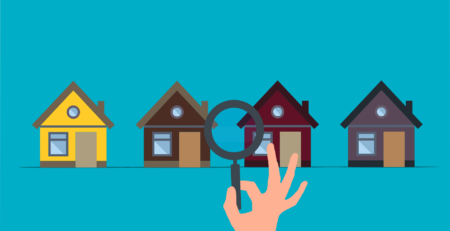Avoiding First-Time Home Buyer Mistakes
Stepping onto the property ladder is an exciting milestone, but it can also be fraught with potential pitfalls. As a first-time buyer, it’s easy to become overwhelmed by the process, making mistakes that can cost you financially and emotionally. In this comprehensive guide, we’ll delve into the most common mistakes first-time buyers make and offer actionable advice on how to avoid them.
Financial Preparedness
Underestimating the Total Cost
One of the most significant errors first-time buyers make is not accounting for the full cost of purchasing a home. Beyond the purchase price, there are numerous additional expenses, including legal fees, survey costs, insurance, Stamp Duty, and removal costs. Overlooking these can lead to financial strain once you’ve moved in.
To avoid this, create a detailed budget that encompasses all potential costs. Consulting with professionals and using online calculators can help you get accurate estimates. Setting aside a contingency fund for unexpected expenses is also wise.
Neglecting to Check Credit
Your credit score plays a crucial role in securing a mortgage with favourable terms. Many first-time buyers fail to check their credit score before applying for a mortgage, only to discover issues that could have been resolved beforehand.
Regularly monitor your credit report and address any discrepancies or debts well before starting the home-buying process. This proactive approach ensures you are in the best possible position to get a good mortgage deal.
Making a Small Down Payment
While it’s possible to buy a home with a small deposit, doing so can limit your mortgage options and result in higher monthly payments. A larger deposit often means better mortgage rates and more manageable payments.
Aim to save at least 10-20% of the property price to expand your mortgage options and secure more favourable terms. If saving this amount seems daunting, consider delaying your purchase until you have saved more.
Choosing the Right Property
Overlooking Neighbourhood Research
Falling in love with a house without researching the neighbourhood can lead to regret. Factors such as transport links, local amenities, schools, and crime rates significantly impact your quality of life.
Visit the area at different times and days to get a real sense of what it’s like. Speak to locals, check online forums, and consult local estate agents to gather comprehensive information about the neighbourhood.
Ignoring Property Surveys
Skipping a property survey to save money is a common mistake that can lead to costly repairs in the future. Structural issues, plumbing problems, and pest infestations are often not visible to the untrained eye.
Invest in a thorough property survey by a qualified surveyor. Ensure all identified issues are addressed before completing the purchase. This investment can save you significant money and stress down the line.
Letting Emotions Drive Decisions
Buying a home is an emotional journey, but letting your heart rule your head can lead to poor financial decisions. You might overlook significant flaws or stretch your budget because you’ve fallen in love with a property.
Maintain a clear set of priorities and stick to them. Create a checklist of must-have features and deal-breakers, and review it objectively for each property. Seek input from trusted friends or family to keep emotions in check and ensure you make a practical decision.
Navigating Mortgages

Settling for the First Mortgage Offer
Many first-time buyers make the mistake of accepting the first mortgage offer without shopping around. Different lenders offer various deals, and the lowest headline rate isn’t always the cheapest overall due to hidden fees.
Compare multiple mortgage offers and consider consulting a mortgage broker to find the best deal for your circumstances. Look at the total cost of each mortgage, including arrangement fees and interest rates.
Not Considering Different Loan Types
There are various mortgage options available, each suited to different financial situations. First-time buyers often don’t explore all their options, ending up with a less suitable mortgage.
Discuss your financial situation with a mortgage advisor to understand the different types of loans available. Whether it’s a fixed-rate, variable-rate, or government-backed loan, choosing the right one can make a significant difference in your financial stability.
Understanding Legal Aspects
Misunderstanding Leasehold vs. Freehold
Leasehold and freehold properties come with different rights and responsibilities. Many first-time buyers don’t fully understand these differences, leading to unexpected costs and restrictions.
A leasehold property means you own the building but not the land, requiring permission from the freeholder for alterations and incurring annual ground rent. Freehold means you own both the property and the land, giving you more freedom but also more responsibility for maintenance. Ensure you fully understand the type of property you’re buying.
Using the Wrong Solicitor
Choosing a solicitor not approved by your lender can cause delays and extra costs. Your mortgage lender typically has a panel of approved solicitors, and using someone outside this list might mean paying for an additional solicitor.
Select a solicitor from your lender’s approved panel to avoid extra costs and ensure a smoother process. Research and choose a solicitor with good reviews and experience in property transactions.
Finalizing the Purchase

Failing to Negotiate
Many first-time buyers accept the asking price without negotiating. This can lead to overpaying for the property, especially in a buyer’s market where prices are more flexible.
Research recent sale prices of similar properties in the area and use this information to make a reasonable offer. Be prepared to negotiate and provide justifications for your offer to increase your chances of success.
Rushing the Process
The excitement of buying a home can lead to rushing decisions, skipping important steps, or settling for a property out of frustration. This can result in long-term dissatisfaction and financial strain.
Take your time to find the right property and ensure all due diligence is completed. It’s better to wait a little longer for the perfect home than to rush and regret your decision later.
Conclusion
Buying your first home is a significant and exciting milestone, but it’s essential to approach the process with careful planning and informed decision-making. By understanding and avoiding these common mistakes, you can ensure a smoother, more enjoyable journey to homeownership. Remember, thorough research, financial preparedness, and seeking professional advice are your best tools in navigating the property market successfully. As Jamie Johnson, CEO of FJP Investment, aptly puts it, “A well-informed buyer is a confident buyer, and confidence is key to securing your dream home without unnecessary setbacks.”
ARE YOU READY TO START INVESTING?
Subscribe to our mailing list now for exclusive deals, investment guides and the latest information from the property market.







